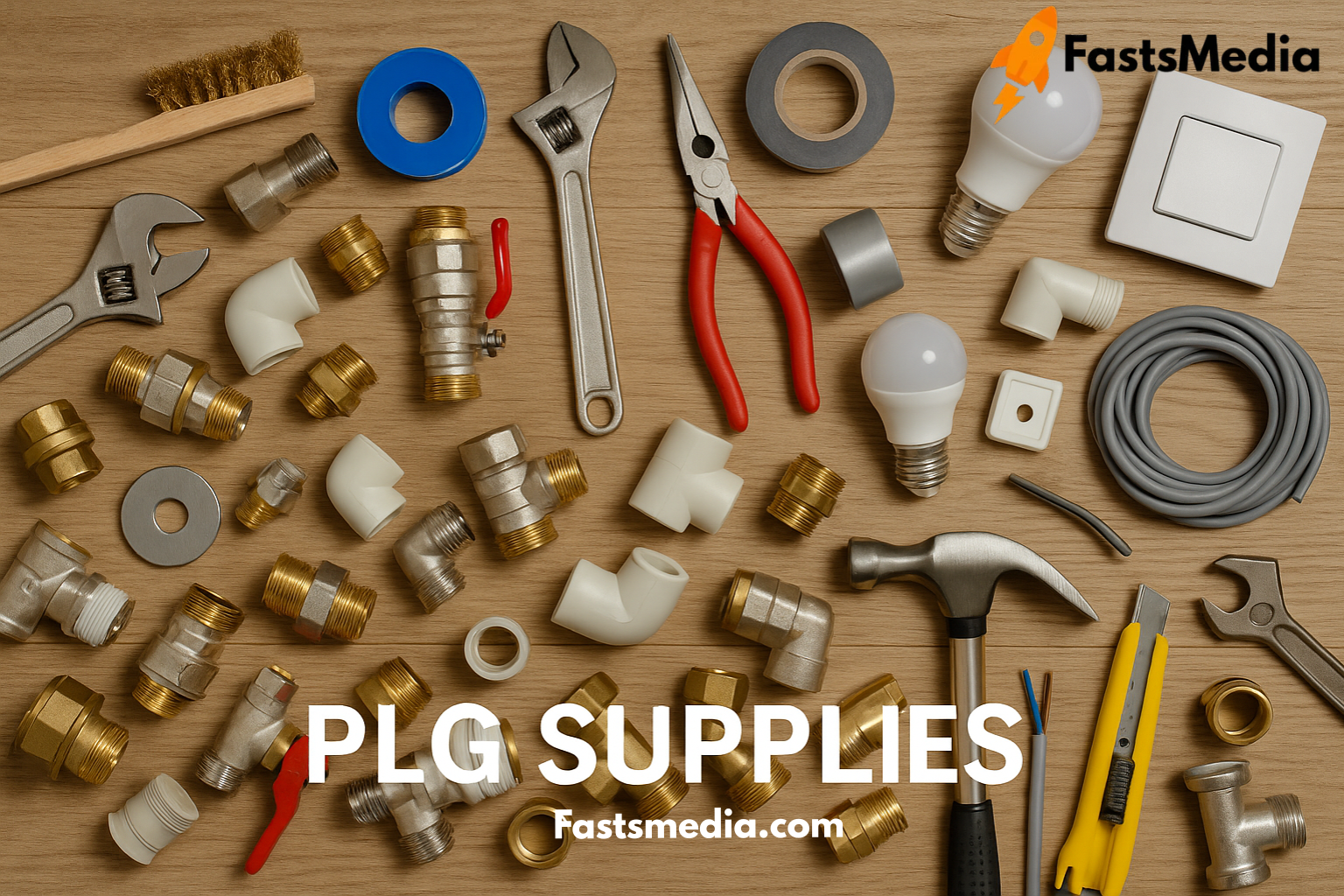Introduction
In today’s competitive business world, efficiency is the foundation of success. Every company, whether it operates in manufacturing, construction, or technology, depends on reliable resources to keep things running smoothly. This is where PLG Supplies comes in — a term that has become increasingly important across both industrial and digital sectors.
PLG Supplies carries two major meanings, each equally relevant in the modern economy. On one hand, it refers to Product-Led Growth (PLG) supplies, which are the digital tools and software systems that help companies grow by letting their products attract and retain customers naturally. On the other hand, it also describes physical industrial suppliers — companies that deliver hardware, lighting, tools, and safety materials that businesses need to operate efficiently.
Whether digital or physical, PLG Supplies symbolizes one key idea: empowering organizations with the right tools to drive sustainable growth.
Understanding PLG Supplies in the Industrial World
In the industrial sense, PLG Supplies refers to a reliable supplier or distributor of essential products for companies that build, repair, or maintain infrastructure. These suppliers form the backbone of industries by ensuring that factories, construction sites, and government facilities always have the materials they need.
Imagine a construction company that runs out of electrical fittings or safety gear in the middle of a project. Every minute of downtime costs money. A dependable partner like PLG Supplies eliminates that problem by offering efficient procurement systems and timely deliveries. From industrial cleaning chemicals and plumbing fixtures to heavy tools and protective gear, they make sure businesses never stop working.
The importance of such suppliers has only grown as industries become more interconnected and fast-paced. PLG Supplies typically serves sectors such as construction, manufacturing, logistics, and energy — where precision and dependability are everything. Their strength lies not only in providing products but also in simplifying the entire procurement process through modern technology and logistics support.
The Digital Meaning: Product-Led Growth (PLG) Supplies
In the digital economy, PLG takes on an entirely different but equally powerful meaning. Product-Led Growth (PLG) is a strategy where a company’s product itself drives growth. Instead of relying solely on large marketing or sales teams, businesses design their products to attract, convert, and retain users naturally.
In this context, PLG Supplies are the tools and systems that support this approach. These include analytics platforms, onboarding systems, in-app messaging, and automation software that help businesses understand and improve how users interact with their product.
For example, a software company might use a PLG supply such as Mixpanel to track user behavior, Appcues to guide users through onboarding, and Intercom to communicate directly with them. Together, these tools form a digital ecosystem that helps the product grow on its own, powered by user satisfaction and data-driven improvements.
Companies like Slack, Dropbox, and Zoom have used this exact model to achieve global success — proof that the right PLG supplies can turn a good product into a self-sustaining growth engine.
How PLG Supplies Drive Efficiency and Growth
Whether physical or digital, the philosophy behind PLG Supplies is the same — growth through simplicity, reliability, and smart resource management.
In the industrial world, efficient supply chains are what keep production moving. When companies can depend on their suppliers for quality materials delivered on time, they can focus on innovation rather than worrying about inventory shortages. PLG Supplies stands for that reliability — a system where every component, from procurement to delivery, works seamlessly.
In the digital world, PLG supplies streamline product development and user engagement. Data analytics tools help businesses understand how customers use their products, onboarding systems reduce churn by making setup easier, and communication tools create a feedback loop between users and developers. Each element is a “supply” that feeds into the company’s overall growth system.
This dual nature of PLG Supplies — physical and digital — perfectly reflects the balance of today’s economy. Even traditional industries now rely on software tools for inventory and logistics, while digital companies depend on tangible infrastructure like servers and offices.
Building a Product-Led Growth System with PLG Supplies
To successfully implement a PLG approach, a company must integrate its PLG supplies in a structured, strategic way. The process begins with understanding the user. What value does the product deliver, and how quickly can users experience that value? The faster they see results, the higher the chance they’ll stay and advocate for the product.
Next, businesses should select tools that align with their needs — for example, an analytics platform to track engagement, an onboarding tool to guide new users, and an in-app messaging system for direct communication. Once implemented, the company must map the entire user journey from first interaction to long-term retention, constantly using data to identify and fix weak points.
The secret to effective PLG is iteration. Continuous testing and feedback ensure that the product evolves alongside user expectations. PLG supplies provide the framework and technology that make this constant evolution possible.
The Future of PLG Supplies: Where Physical Meets Digital
As industries modernize, the line between physical and digital PLG supplies continues to blur. Industrial suppliers now use cloud-based procurement systems and automated inventory tracking, while digital-first companies rely on physical logistics for hardware, packaging, and customer support.
This convergence represents the next phase of global growth — hybrid efficiency, where physical reliability meets digital intelligence. PLG Supplies, in either form, stand for that union. They represent the future of how businesses acquire, manage, and optimize their resources — whether it’s a box of industrial tools or a suite of digital analytics software.
The companies that master both sides of PLG will lead tomorrow’s markets. They will be the ones who can build products people love, maintain supply chains that never stop, and grow sustainably in a rapidly changing world.
Conclusion
PLG Supplies embodies the spirit of modern business growth. In one form, it represents industrial suppliers who keep the physical world running — factories, construction sites, and facilities that depend on reliable materials. In the other, it represents the tools and systems that drive digital success through Product-Led Growth strategies.
Both interpretations share a single philosophy: growth through efficiency. Whether you’re tightening bolts in a workshop or optimizing a software onboarding flow, PLG Supplies help you work smarter, faster, and more effectively.
As industries evolve and technology becomes more integrated, the companies that embrace both meanings of PLG Supplies will thrive — combining practical reliability with digital innovation to build a truly sustainable future.
Frequently Asked Questions (FAQs)
1. What does PLG Supplies mean?
PLG Supplies can refer to either physical suppliers providing industrial goods or the tools and systems used in Product-Led Growth strategies that help businesses grow through their products.
2. Why is PLG important in today’s economy?
PLG (Product-Led Growth) focuses on creating products so valuable and intuitive that they sell themselves, helping businesses scale efficiently without heavy reliance on marketing or sales.
3. What industries use PLG Supplies?
Both industrial and digital sectors use PLG Supplies — from manufacturing and construction companies to software firms and tech startups.
4. How do PLG tools help digital businesses?
They provide data analytics, onboarding flows, and automation features that enhance user experience, retention, and growth.
5. Are PLG Supplies limited to technology companies?
No. While PLG strategies are popular in tech, the concept of reliable, growth-focused supplies applies to any industry aiming to improve efficiency and customer satisfaction.

